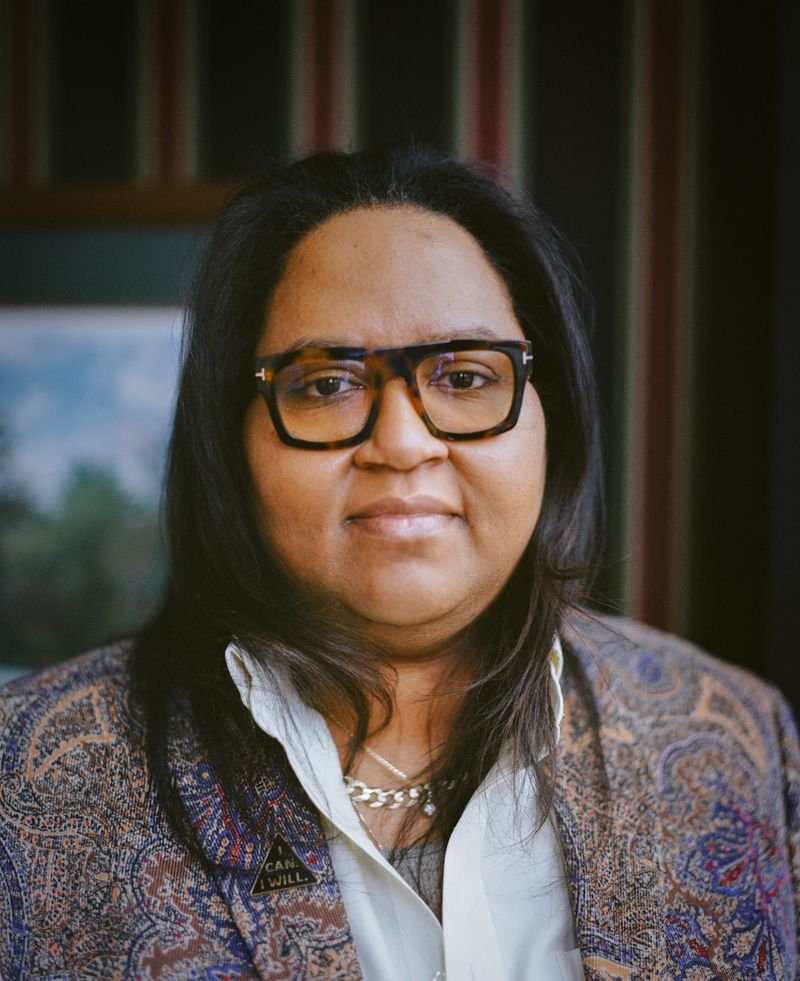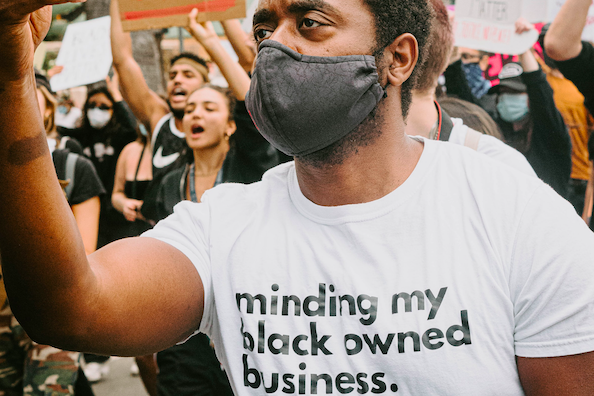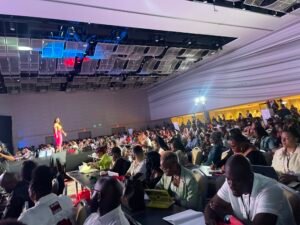
Of all the products made at Danette Wilder’s small manufacturing plant near the University of Kentucky in Lexington, the products she depended on most for sales were the O-rings cranked out by her vintage presses.
Each month, Wilder’s crew of six people, working at long tables as they listened to a soundtrack of funk and R&B, made thousands of the rubber loops, cut from spools into precise strips and spliced into uniform perfect circles.
The work distinguished Wilder’s company, SealingLife Technology, as one of the vanishingly few rubber products suppliers owned by a female engineer — not to mention one who is also Black. It hasn’t been an easy path: Wilder has navigated state and federal set-aside programs, tight-fisted bankers and what she saw as obvious discrimination. But eventually, Wilder built SealingLife into a reliable vendor for all manner of aerospace, medical and other industrial businesses.
Now, SealingLife is struggling to survive as orders for its O-rings have dried up over the past year, plunging the company into hundreds of thousands of dollars in debt. That’s not an unusual story in the current pandemic-induced recession, which has been a gut punch for millions of small business owners. But Wilder faces obstacles that are disproportionately common among Black-owned companies, which on average had fewer resources to draw upon going into last year, were hit particularly hard by the downturn and were less well-served by the relief programs set up to help.
“We’re in a purgatory state,” Wilder said. “The long term is, if we can’t get our foot in the door with people who understand what we do and how we do it and provide us opportunities to grow, then the outcome is very bleak.’’

There are disparities between American businesses owned by white people and those owned by all minority groups, but the widest ones are typically with Black entrepreneurs, who tend to have modest family wealth and thin professional networks to help recruit talent and cut deals. Although the number of Black-owned businesses has grown in recent years, the vast majority remain sole proprietorships. As of 2012 — the most recent data the Census Bureau has collected — average annual sales for a Black-owned business came to about $58,000, compared to nearly 10 times that amount for the average white-owned enterprise.
Those years of compounding disadvantage have been exacerbated by the pandemic. For example, 18.4% fewer self-employed Black people were working in July 2020 than there had been a year previously, compared to 6.2% fewer self-employed white people (the dips for Asian and Hispanic people were even smaller). And minority-owned businesses overall have also been at the back of the line for relief programs, which were initially designed without factoring in the unique challenges of small businesses owned by people of color. As a result, federal Paycheck Protection Program loans to businesses in areas with a higher percentage of minority residents came in later and in lesser amounts per employee.
That’s not new either. Decades of public and private initiatives meant to boost minority-owned businesses have fallen short. Since the 1980s, race-based contracting preferences have been weakened by federal court rulings. Now, the pandemic’s fallout threatens to arrest the nascent progress of a generation of Black entrepreneurs. That would only widen the yawning gap between wealth held by white people and that held by African Americans, which had barely begun to narrow after the last recession in 2009.
Wilder, 50, stands an imposing 6 feet tall, and shows up for a factory tour wearing maroon slacks, loafers, and big blocky glasses. She’s lived through all of those systemic disadvantages that show up in statistics. But she doesn’t want to end up like the averages. She just wants a fair shake.
“Whenever something’s been amputated, you need a recovery period,” Wilder said. “It’s sort of like, when you get behind on something, if there’s nothing to help you recover, nothing really helps.”
Danette Wilder grew up in inner-city Detroit, where her father, with only a few years of formal schooling, had moved to work in a Chrysler plant. She went to Detroit’s Central High School, which at the time had one of the worst graduation rates in the nation.
But Wilder did well in school, and enrolled at Old Dominion University, in Norfolk, Virginia, where her half-sister Gwendolyn Wilder lived. When their brother was murdered in Detroit, the two sisters took over caring for his two infant children. Danette Wilder worked multiple research and development jobs while finishing her degree, then landed an engineering job at Corning Inc., the venerable materials company now famous for making glass iPhone screens. Gwendolyn Wilder, too, got a Corning job, as an executive assistant.
Corning, located in largely white upstate New York, was making a diversity push. But Danette Wilder said she soon learned that she’d been hired at a much lower salary than the other engineering recruits; when she raised the disparity with her bosses, she said, she got nowhere.
Instead, Wilder tried a workaround, getting a side job for a few hours a week at a Toys R Us in Corning, which she knew company employees and executives would frequent. The extra income helped, but she also believes her second job led higher-ups to double her pay. “It caused such an uproar, because people were like, ‘She works for Corning?’” Wilder recalled.
Wilder reasoned that working within the system might be more effective than loudly decrying injustice. “Sometimes it’s not all about starting a riot,” she said. “It’s about strategically understanding their rules, and learning how to utilize them to get what you need.” (A spokesperson for Corning declined to comment on the incident but said that the company has “consistently operated at parity for minority and majority pay equity for many years.”)
Next, Wilder joined Toyota Motor Manufacturing in Georgetown, Kentucky, which paid even better. But the work wasn’t as professionally stimulating as at Corning, so Wilder started doing some information technology consulting on the side, and in 2005 she quit Toyota to go out on her own. One consulting client was Les Burd, who in 1989 had started a rubber company called ElastoSeal. Burd hired Wilder as ElastoSeal’s chief operating officer, and credits her with improving all manner of business functions. A few years later, when Burd was looking for a succession plan, they arranged for Wilder to buy a stake in the company.
The transfer, however, hit a snag when other people involved in the transaction objected. That brought Wilder to a familiar point for many people of color: Seeing no other plausible explanation for a setback, and wondering whether discrimination could be at play. “You see I’m educated. I’ve proven I know how to make you money. And you’re still struggling?” Wilder said. “It’s hard to prove in a court of law, but it really is that legitimate.”
Burd said he understands prejudice exists, but doubts that it thwarted his deal with Wilder (who emphasized her respect for him). “It’s just different hurdles to jump through, and we didn’t make a conscientious enough effort to get it done,” he said.









More Stories
Global Economic Ripples: China’s Layoffs and Business Closures and the Potential Impact on Black Businesses in the US
The BOSS Network and Sage Announce the Winners of its 2nd Annual “Invest in Progress” Grant Program
20 Marketing Strategies to help you build your brand!